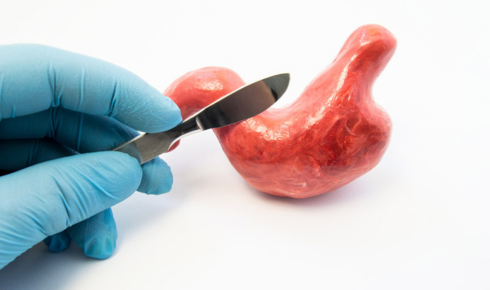It’s funny how our relationship with food and our bodies can feel so complicated, isn’t it? For some, food is comfort. For others, it’s control. And for many, it’s both — a constant tug-of-war between wanting to enjoy life and wanting to feel good in their own skin. That’s why conversations about medical weight loss have become so personal lately. They’re not just about vanity anymore; they’re about survival, energy, longevity… peace.
People are tired of fad diets and miracle shakes that fade faster than New Year’s resolutions. They’re searching for real solutions — things that actually work, with results that stick. And that’s led many to explore the world of surgical gastroenterology, where science meets courage, and decisions often come from a place of deep self-care rather than just frustration.
The World Behind the Word “Surgery”
When people hear “weight loss surgery,” they picture operating tables and dramatic before-and-after photos. But what’s easy to miss is how nuanced it all is. Surgical gastroenterology isn’t just a collection of procedures; it’s a field that’s evolved to address everything from chronic obesity to complex digestive issues that affect how our bodies process food.
Doctors in this field often act like detectives, figuring out not only what your problem is but why it’s happening. For some, it’s genetics. For others, hormones, metabolism, or even trauma. It’s not about willpower. It’s about biology — and that realization can be incredibly freeing for people who’ve blamed themselves for years.
And if you’ve ever spoken with someone who’s gone through a procedure like a gastric sleeve or bypass, you’ll hear the same phrase again and again: “I wish I’d done it sooner.” Not because it was easy, but because it finally gave them back control of their lives.
The Truth About Weight Loss Balloons
Now, not everyone is ready — or needs — surgery. Some just want a nudge in the right direction. That’s where non-surgical options like gastric balloons come in. Essentially, it’s a small, soft balloon placed in the stomach to help you feel full faster. It stays there for several months, teaching your body (and your brain) new eating habits.
Of course, one of the first questions people ask is about weight loss balloon cost — and that’s fair. These procedures aren’t pocket change. On average, the cost can range from $5,000 to $8,000 in the U.S., depending on the clinic and the program that comes with it. Some include nutrition counseling or follow-ups, which can make a huge difference in long-term success.
But here’s the thing: it’s not just about the money. It’s about deciding what your health is worth to you. Some people spend that amount over the years on crash diets, supplements, or gym memberships they barely use. When you look at it like that, the investment starts to make more sense.
Still, it’s not for everyone. Balloons work best for people who want to lose a moderate amount of weight and prefer a less invasive approach. They’re temporary, yes, but the habits they help you form can last much longer.
The Stories Behind the Sleeve
Let’s talk about one of the most well-known weight loss procedures out there — the gastric sleeve. Officially called a sleeve gastrectomy, it involves removing a portion of the stomach, turning it into a smaller, sleeve-like shape. Sounds intense, but it’s also one of the most effective and commonly performed surgeries today.
People often get curious about sleeve surgery before and after transformations. And while those dramatic photos online are powerful, what’s more fascinating is what happens between those photos — the emotional, messy middle part of healing. The early days can be rough: liquid diets, soreness, emotional swings. Then, gradually, the fog lifts. Clothes fit differently. Energy returns. People start walking longer, sleeping better, laughing more.
That’s the beauty of it — it’s not just about size; it’s about reclaiming your life inch by inch, meal by meal. For many, it’s like meeting themselves again for the first time.
Beyond the Scalpel: The Emotional Weight of It All
Here’s what most glossy websites don’t tell you: surgery doesn’t just change your stomach. It changes your entire sense of self. There’s this period — sometimes weeks, sometimes months — where your mind and body are catching up to each other.
You might feel euphoric one day and completely off-balance the next. Your old comfort foods may no longer comfort you. People treat you differently, sometimes better, sometimes with quiet envy. Even simple things — like buying new clothes or looking in the mirror — can feel strangely emotional.
This is why ongoing support is critical. The best programs don’t just operate on you and send you home. They guide you through nutrition, therapy, exercise, and community. Because, let’s face it, changing your body is one thing. Changing your habits — and your mind — is another.
The Money Question: Is It Worth It?
Whether you’re considering a balloon, a sleeve, or another type of bariatric surgery, cost will always come up. And it should. These procedures can be expensive, sometimes ranging from a few thousand dollars to upwards of twenty thousand, depending on insurance and location.
But if we’re being real, most people don’t ask “Is it worth it?” because of the price tag. They ask it because they’re scared — scared it won’t work, or worse, that it will, and they’ll have to face who they become afterward.
That fear is valid. Change is hard. But ask anyone who’s come out the other side, and they’ll tell you: the cost is temporary. The feeling of freedom — of being able to walk up stairs without gasping, of playing with your kids without pain, of seeing a version of yourself you thought was gone — that’s priceless.
Healing, Not Perfection
At the end of the day, this isn’t about perfection. It’s not about chasing an ideal body or fitting into a smaller size. It’s about healing — physically, emotionally, maybe even spiritually.
The world of surgical weight loss isn’t simple, but it’s hopeful. Every scar tells a story of someone who refused to give up on themselves. Every “before and after” is really just one long, beautiful “during.”
So if you’re sitting there, scrolling through stories, wondering if you’re ready — take your time. Read, ask, dream. Talk to people who’ve been there. Because the decision isn’t just about your stomach or your scale. It’s about your life.
And if you do take that step, whether it’s surgery, a balloon, or something else entirely, remember this: change doesn’t happen all at once. It happens in quiet moments — a skipped snack, a deeper breath, a morning you wake up feeling a little lighter, inside and out.

